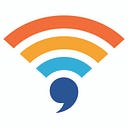The Right to Connect: Life or Death Right Now
For decades I have been advocating about the importance of affordable access to broadband and phone calls for incarcerated people — and the COVID-19 pandemic has unfortunately proven how essential that access can be. The great news is that all of the United Church of Christ’s media justice advocacy on these issues over the years is now paying off: policymakers and ordinary citizens are now seeing the connection between affordable communications and access to education, health care, and economic and physical security. It’s been gratifying to be able to work on these issues with coalition partners — the MediaJustice Network, civil rights organizations and more than 250 other national and local organizations.
UCC OC Inc. has been leading in critical communications justice campaigns like these:
- The Federal Communications Commission (FCC) to treat families of incarcerated people like everyone else and demand that the telephone companies that serve them step up and offer free service during this crisis;
- The FCC to ensure that low-income people who rely on the Lifeline program to provide affordable telecommunications services can qualify for unlimited cell-phone minutes and texts so they can access important services while they are required to shelter in place.
- Congress to appropriate $2–3 billion per month to give all low-income people access to an emergency broadband benefit — free, high quality broadband during this crisis.
We’re partnering as a new member (but long-time ally) with the MediaJustice Network to ensure that low-income people can share their own stories with decision-makers at the #Right2Connect online townhall. And I’m lobbying hard in the virtual halls of Congress, making sure that members and their staff don’t forget about people who are so often marginalized.
In these conversations we can talk about how the lack of communication in the past is not only a consequence of inequality, but a cause. If we can’t communicate, we don’t know each other’s stories, then we can’t lift each other up, we can’t care for each other. Communication is particularly important for incarcerated people. Daughters, fathers, cousins, grandmothers are anxious to reach out to get and give support. If stories from inside prisons are not told, horrible life-threatening conditions are more likely to persist. We can save lives.
We can save lives.
And for people trying to stay home to “flatten the curve” of the pandemic, high-speed broadband could also mean the difference between life and death. More than 54 percent of people with incomes below $20,000 do not have access to the Internet from their homes. If senior citizens or those with disabilities and chronic conditions most at risk of death from COVID-19 can stay home and access telehealth services, we can save lives. The more people who are able to stay home to work and learn, the faster our public health crisis will be over. But that is not possible if a household’s broadband connection is limited by data caps or slow speeds.
More than 54 percent of people with incomes below $20,000 do not have access to the Internet from their homes.
Everyone can participate, via these petitions, and by contacting governors, mayors and members of Congress to tell them that affordable broadband access is a matter of life or death: we need it for everyone.
Join the MediaJustice network petition for FCC prison #phonejustice, for prison #phonejustice in Congress and the AccessNow petition for broadband for all.
Last, please pledge your financial support. UCC Media Justice can do this work because of a 60-year investment in media justice and communications rights. We can only do it if we get financial support from people who are able to offer it. Please join our $60 for 60 campaign.
— Cheryl A. Leanza is the policy adviser for the United Church of Christ’s media justice ministry, OC Inc.
